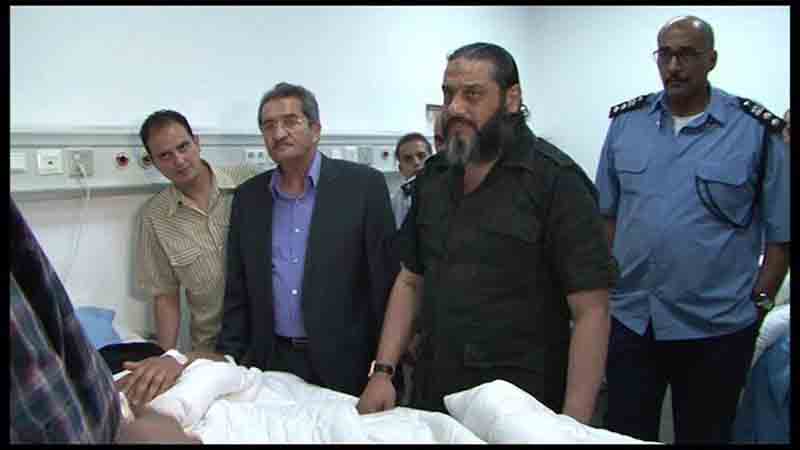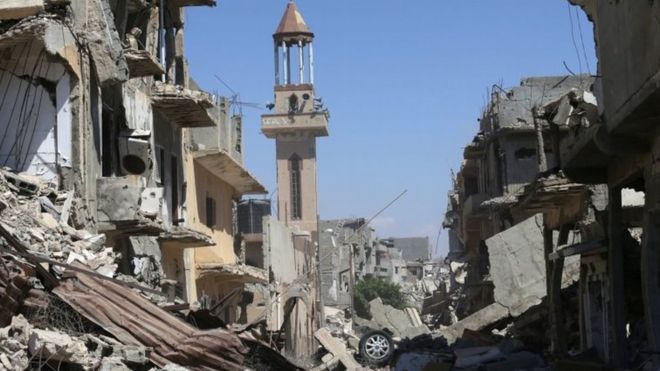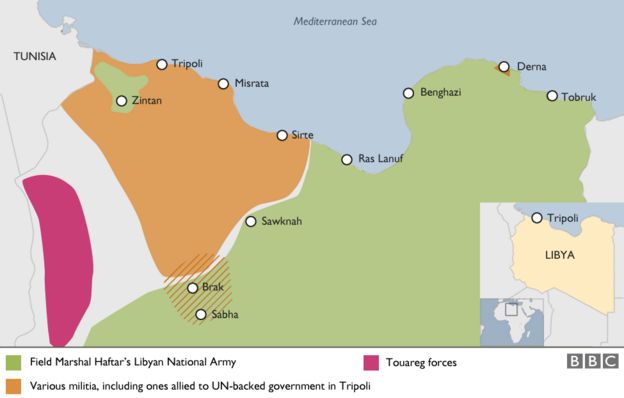Raising of Qatar’s flag in Libya was an eerie moment

Dubai: An eerie sight that marked the capture of Bab Al Aziziya in 2011, the hitherto unassailable headquarters of Libyan former leader Muammar Gaddafi in the capital Tripoli was when rebels raised the flag of Qatar in a rundown balcony.
Doha is more than 4,600 kilometres away from Tripoli and seemingly nothing links the two capitals.
Yet, the sight of the serrated maroon and white flag being flown over Gaddafi’s presidential complex was a clear indication of the involvement of Qatar in the dramatic events unfolding in Libya.
The political establishment in Qatar was reportedly deeply enthusiastic for the uprisings in Tunisia, Egypt and Libya in 2011.
In Libya, Qatar played the same proactive role it had in other countries and reports said that it secured the non-objection of the Arab League to the military intervention in Libya that was crucial in toppling Gaddafi’s regime.
The rebels received financial and military support that enabled them to sustain their action against the regime.
“Following the September 11 terror attacks, the US came up with their new vision of the Middle East, basically claiming that the Arab communities are barbaric societies that have not entered modernity, that their dictators were not fully in compliance with the international order and that it was better to drop them and replace them with new rulers who are able to control their communities,” Mohammad Abdul Mattalib Al Hooni, a Libyan analyst, said.
“The West decided that the best political component would be the Muslim Brotherhood since they were the only organised political force in the region and used a religious discourse that could be understood by the masses.”
According to Al Hooni, Qatar grasped this strategy for the West and embraced the Muslim Brotherhood to act as a great power in the region.
“Qatar wanted to be the link between the Western forces and the Islamist groups that would be entrusted with managing the region,” Al Hooni said in a column published by Al Arab daily on Monday.
Al Hooni said that Qatar resorted to a known terrorist, Abdul Hakeem Belhaj, and named him representative of Libya at the North Atlantic Treaty Organisation (Nato) meeting amid the world’s leading generals.
“Following the failure of the Libyan-Western project in Tunisia and Egypt, Qatar became more determined to dominate Libya to use its geographic location to sow problems in Egypt and pave the way for the return of the Muslim Brotherhood at the helm of the state. It also worked on helping Al Nahdha return to power in Tunisia.”
http://gulfnews.com/news/gulf/qatar/raising-of-qatar-s-flag-in-libya-was-an-eerie-moment-1.2042345

Dubai: An eerie sight that marked the capture of Bab Al Aziziya in 2011, the hitherto unassailable headquarters of Libyan former leader Muammar Gaddafi in the capital Tripoli was when rebels raised the flag of Qatar in a rundown balcony.
Doha is more than 4,600 kilometres away from Tripoli and seemingly nothing links the two capitals.
Yet, the sight of the serrated maroon and white flag being flown over Gaddafi’s presidential complex was a clear indication of the involvement of Qatar in the dramatic events unfolding in Libya.
The political establishment in Qatar was reportedly deeply enthusiastic for the uprisings in Tunisia, Egypt and Libya in 2011.
In Libya, Qatar played the same proactive role it had in other countries and reports said that it secured the non-objection of the Arab League to the military intervention in Libya that was crucial in toppling Gaddafi’s regime.
The rebels received financial and military support that enabled them to sustain their action against the regime.
“Following the September 11 terror attacks, the US came up with their new vision of the Middle East, basically claiming that the Arab communities are barbaric societies that have not entered modernity, that their dictators were not fully in compliance with the international order and that it was better to drop them and replace them with new rulers who are able to control their communities,” Mohammad Abdul Mattalib Al Hooni, a Libyan analyst, said.
“The West decided that the best political component would be the Muslim Brotherhood since they were the only organised political force in the region and used a religious discourse that could be understood by the masses.”
According to Al Hooni, Qatar grasped this strategy for the West and embraced the Muslim Brotherhood to act as a great power in the region.
“Qatar wanted to be the link between the Western forces and the Islamist groups that would be entrusted with managing the region,” Al Hooni said in a column published by Al Arab daily on Monday.
Al Hooni said that Qatar resorted to a known terrorist, Abdul Hakeem Belhaj, and named him representative of Libya at the North Atlantic Treaty Organisation (Nato) meeting amid the world’s leading generals.
“Following the failure of the Libyan-Western project in Tunisia and Egypt, Qatar became more determined to dominate Libya to use its geographic location to sow problems in Egypt and pave the way for the return of the Muslim Brotherhood at the helm of the state. It also worked on helping Al Nahdha return to power in Tunisia.”
http://gulfnews.com/news/gulf/qatar/raising-of-qatar-s-flag-in-libya-was-an-eerie-moment-1.2042345












